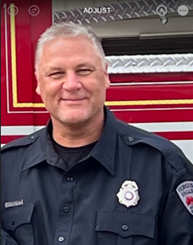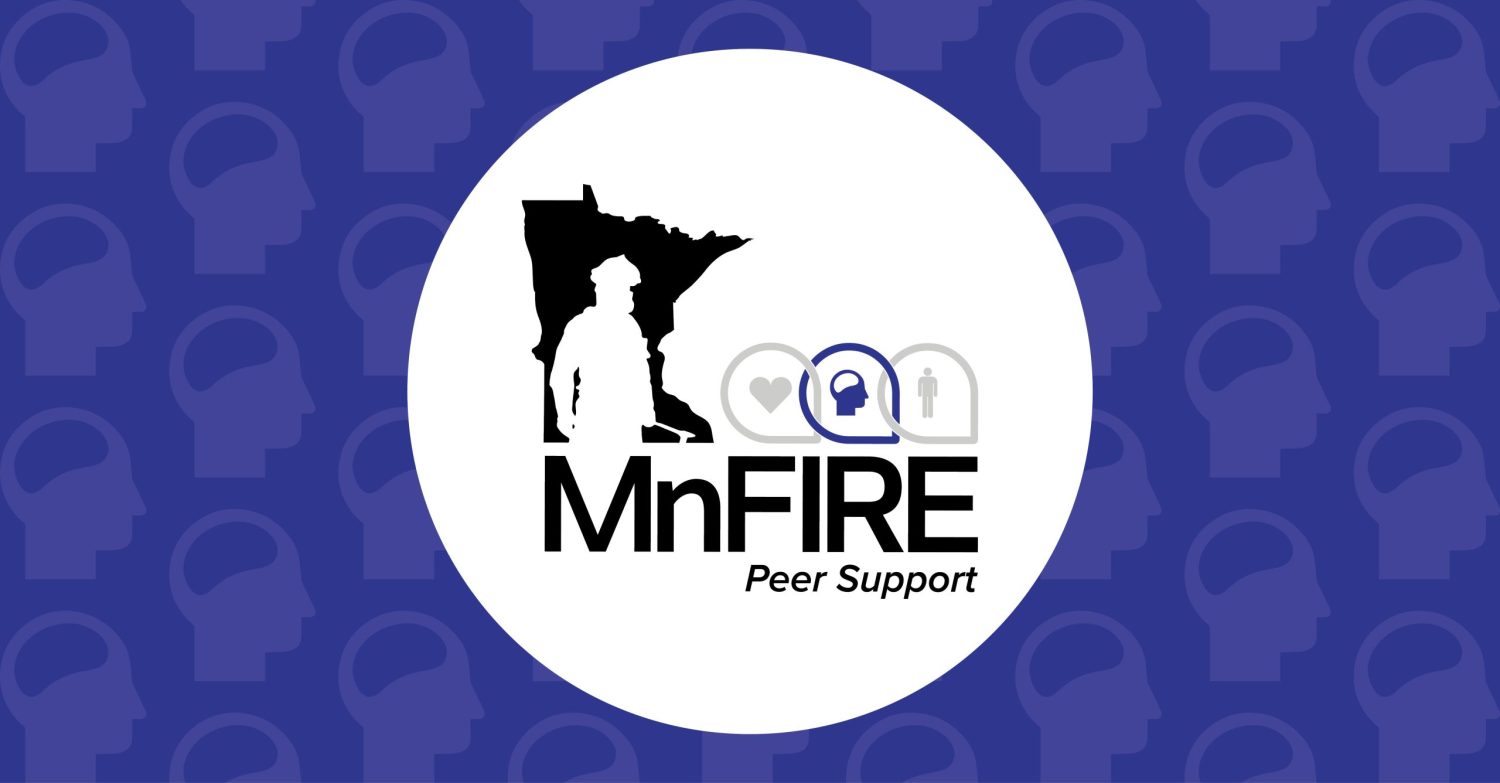MnFIRE’s peer supporters are a crucial lifeline to Minnesota’s 20,000 firefighters and their families. By matching firefighters with someone who has experienced similar struggles, we’re making it easier for folks to get the emotional support they need, while reducing the stigma around talking about mental health and suicide that has historically pervaded the fire service.
But who are these peer supporters, and what is it actually like when you call them?
We sat down for an interview with Jim Salentine, a retired Minnesota firefighter and active peer supporter, to give you another glimpse at the dedicated people behind our Peer Support program.
Tell us a little about yourself, your history with the fire service and who you are outside of your role as a firefighter?

I became a firefighter in 1992, then had a gap and came back in 2018. I’m an honor guard member. My first career was in the computer business. I retired in 2018 and prayed about what I want to do when I grow up. I made a pretty big career change from computers/systems to health care. I’m currently working in homecare as the CEO of New Dimensions Home Health Care, so very blessed to try and make someone’s day a little better.
I’m very involved with my church and on a couple of committees, and I coach basketball. My wife is my best friend; we’ve been married since 1986. We have a white Samoyed named Shiloh. I take great pride in taking care of myself both physically and mentally.
My whole goal is to give someone a four-letter word that is huge and it’s called “HOPE.”
Why did you become a MnFIRE peer supporter?
Because I truly believe the opportunity to make a difference in people’s lives is what it’s all about. Everyone has a story, and they need to be heard, valued, respected and cared for.
What is the most rewarding part of being a peer supporter?
Spending time listening to people – really listening – being so thankful and saying, ‘WOW, I’ve never felt so good talking to someone about my struggles and issues. I thought it was just me and not being strong.’ I say that’s why God gave us two ears and one mouth – we’re supposed to spend twice as much time listening.
What is the most surprising part of being a peer supporter?
I wasn’t sure I had any other expectations of being a peer supporter, other than the blessings that I’ve received. Meeting people where they’re at and being a confidential resource that cares about and loves them.
What do you see as the most valuable component of the Hometown Heroes Assistance Program (HHAP)?
I first became a firefighter back in 1992, and I can say that I wish the HHAP would have been around then. It’s unreal all the support that someone in need can get now. The other thing that is amazing, no issue is too small nor big. You never know when a firefighter is in need of someone who understands. It’s a safe place to know you’re not alone and so many people care about you.
What advice would you give to a firefighter who is looking to improve their mental health?
What you’re experiencing isn’t unusual, you’re not alone. Spend time each day to take care of yourself, eat, sleep, exercise, pray and practice mindfulness.
How to access MnFIRE Peer Support
Call our 24-hour hotline at 888-784-6634. All calls are answered live, 24/7, by experienced mental health professionals, and they can match you with a peer supporter who has had similar life experiences. You can also get connected with a peer supporter using the new MnFIRE PeerConnect app.
Learn more about all of the emotional trauma resources available to Minnesota firefighters and their families at no cost to them on our MnFIRE Assistance Program page.








